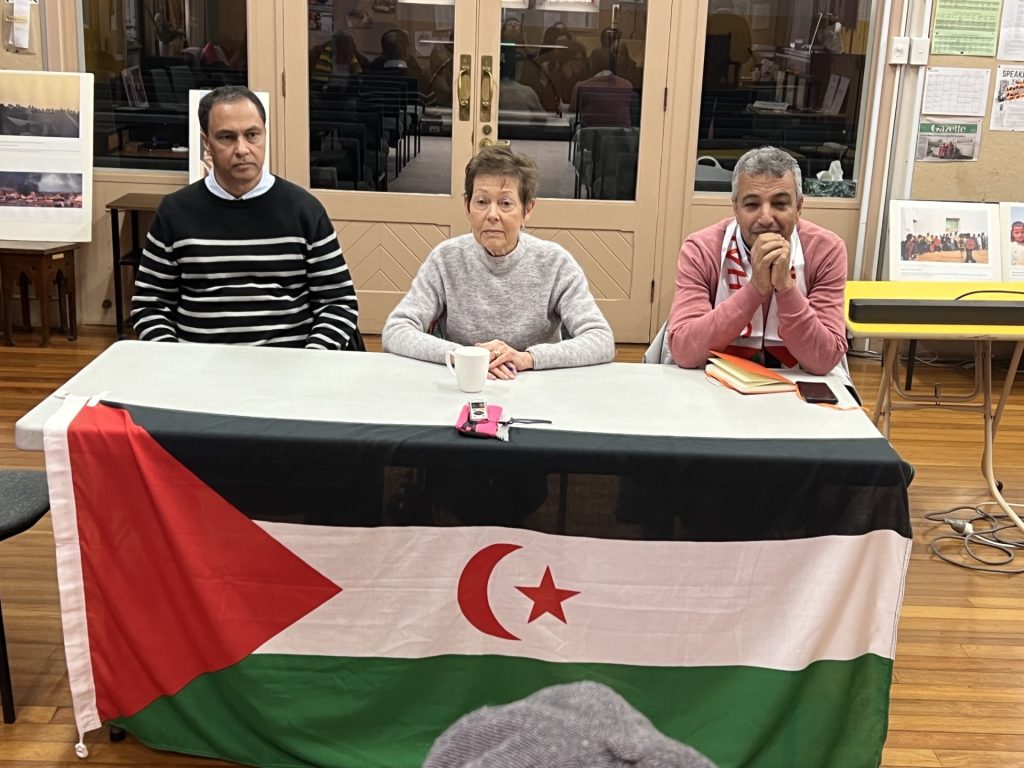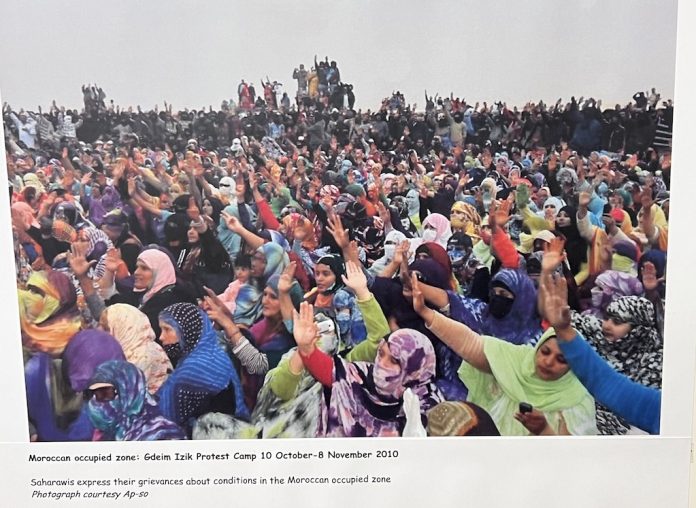The ongoing Western Sahara–Morocco conflict came under the spotlight in Sydney in June when Saharawi activist Mohamed Mayara toured Australia to draw attention to the continuing illegal occupation.
The activist from occupied Western Sahara toured four cities. Mayara attended the ACTU Congress 2024, then went to Melbourne, Sydney and Canberra, accompanied by Mohamed Kamal Fadel, the Polisario Front representative of the Sahrawi Arab Democratic Republic (SADR) to Australia & New Zealand, and members of the Australian Western Sahara Association (AWSA).
A journalist, political activist, and human rights defender, Mayara has been “persecuted, arrested, tortured, and unfairly dismissed from jobs” a few times. He is co-founder and coordinator of the collective of independent journalists Equipe Media, which aims to document Morocco government behaviours in the occupied regions.
On his Sydney tour he addressed a press conference held in the Blue Mountains. The event featured a screening of the documentary he directed, 3 Stolen Cameras, which highlights the illegal and aggressive police abuses against the Saharawi people.
The documentary includes scenes of police brutality such as the beating and hospitalising of vulnerable individuals. It also captures Mayara himself being beaten and arrested.
“I still remember when the Morocco police called us ‘children of bitches’ while beating us,” he said. “Because we have no fathers. I got lucky but most men in the region have either been prosecuted or disappeared, leaving only women and children protesting.
“Morocco has a long history of violence against Saharawi rights and has ignored UN proposals for resolution.”
While media activists like Mayara try hard to reach a wide audience, they face challenges due to limited resources and capacity. “The situation is barely known by anyone,” he said.
Asked if there would be any consequences for organising international events on his return to Western Sahara, he quipped: “Yes, there will. I might be ‘accidently’ hit by a car. I have already been arrested and imprisoned a few times, but I still think travelling overseas and raising global awareness is more important than my own benefits.”

Mohamed Kamal Fadel, the Polisario Front representative of the SADR to Australia & New Zealand, provided a historic introduction to the conflict.
He said that Western Sahara, the homeland of the Saharawi people, was first colonised by Spain in the late 1800s. Following Spain’s withdrawal in 1975, Morocco and Mauritania invaded the territory, igniting a war with the Polisario Front, the Saharawi independence movement.
Since the invasion, Morocco has constructed a 2,500-kilometre-long wall, dividing Western Sahara into a coastal zone occupied by Morocco and an interior region controlled by the Polisario Front.
“This division gives Morocco control over 80 per cent of Western Sahara,” Mr Fadel said.
In 2020, Morocco broke the UN ceasefire deal, leading to another crisis for the indigenous Sahara people.
Asked why did he think the exposure for this issue was not ‘as good’ as other conflicts such as Palestine and Ukraine, he said: “Because we behave and sometimes that is just not ‘sexy’ enough to be reported.”
How to Support the Saharawi Cause?
To support the Saharawi cause, join the Australia Western Sahara Association (AWSA), a not-for-profit organisation, which is committed to raising awareness and advocating for the Saharawi people in Australia.
AWSA’s primary campaign aims include:
Improved access to jobs, housing, and education for indigenous Saharawis in occupied zones; UN monitoring of human rights on both sides of the conflict; and Protection of natural resources for the Saharawi people.
AWSA actively lobbies government and industry, organises educational and cultural events, and appeals for aid to support refugees and human rights defenders.
For AWSA inquiries contact Lesley Osborne, Secretary, Australia Western Sahara Association: info@awsa.org.au Website: www.awsa.org.au


